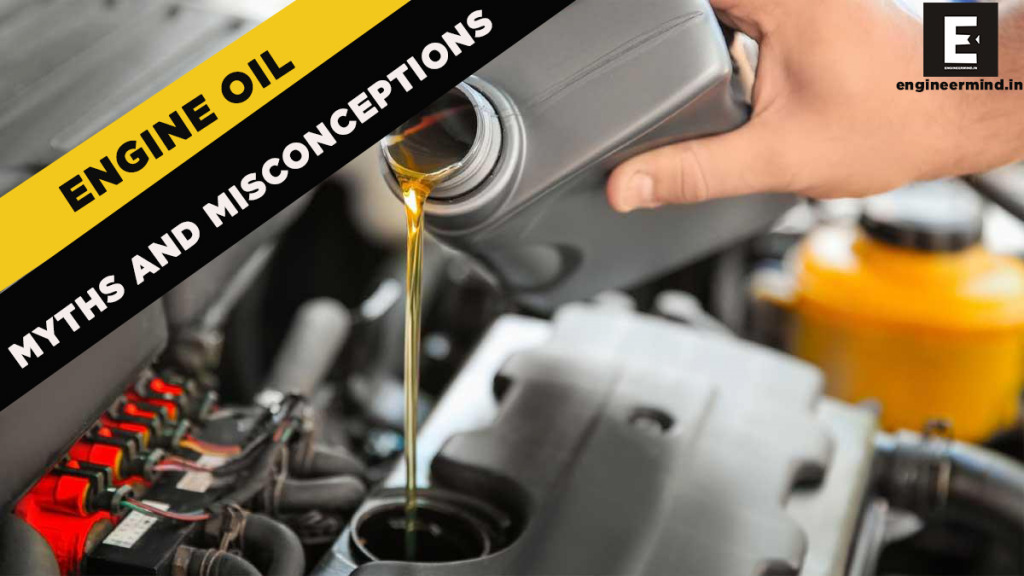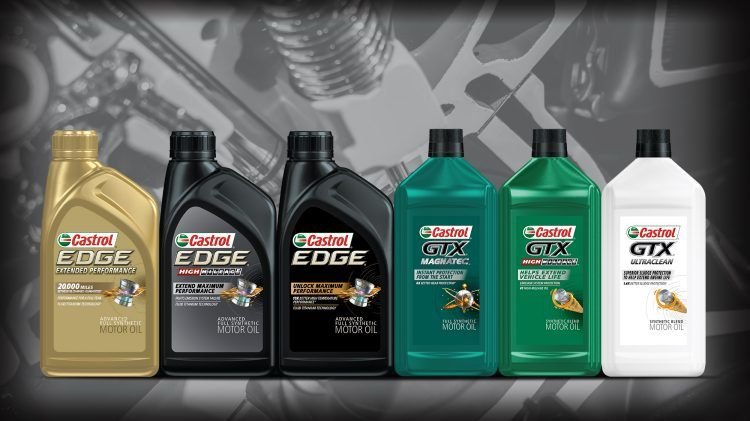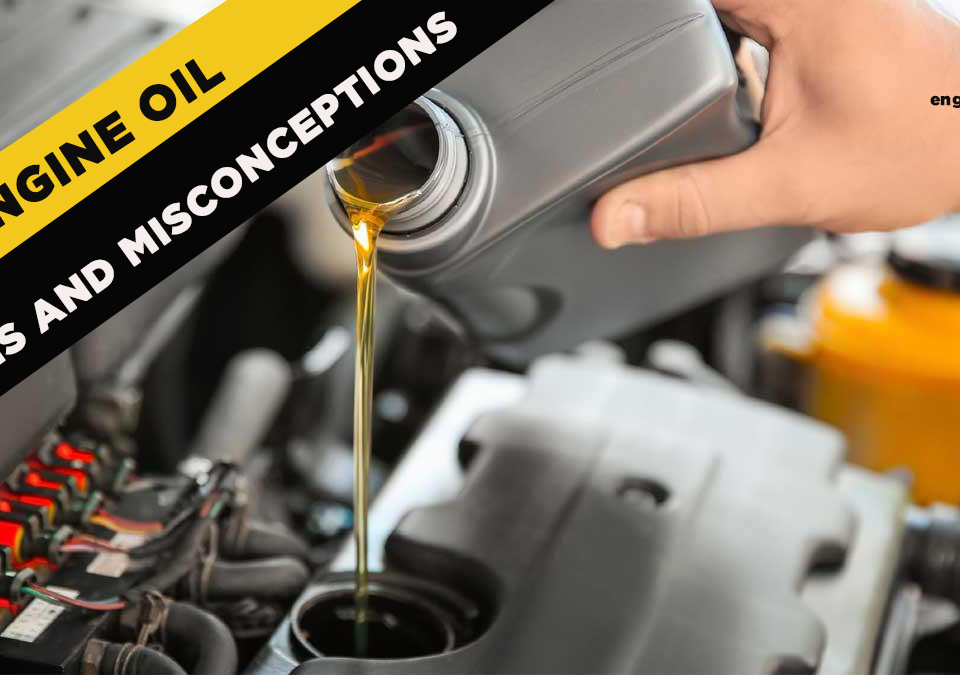In the world of automotive care, there are countless myths and misconceptions surrounding the proper maintenance of our vehicles. One particular area that is often clouded with confusion is engine oil. With so many different opinions and conflicting information out there, it can be challenging to separate fact from fiction when it comes to choosing the right oil for your car.
In this article, we will debunk 18 common engine oil myths and misconceptions, shedding light on the truth behind these widely believed notions. By addressing these misconceptions head-on, we aim to empower car owners and enthusiasts with accurate knowledge, enabling them to make informed decisions about their engine oil choices and ensuring the longevity and optimal performance of their vehicles.
Read: Signs that your car requires an oil change

Table of Contents
1. The “W” in 10W-30 oil stands for “weight.”
The “W” in 10W-30 oil stands for “winter.” The number before the “W” (10 in this case) represents the oil’s viscosity, or ability to flow, at low temperatures. The number after the “W” (30 in this case) represents the oil’s viscosity at higher temperatures or normal operating temperatures. So, 10W-30 oil is a motor oil that has a viscosity of 10 at low temperatures and a viscosity of 30 at normal operating temperatures. This means that it will flow well in cold weather and provide adequate lubrication for your engine at normal operating temperatures.
2. You need to change the engine oil when it becomes dark.
It is a common misconception that the oil should be changed when it becomes dark. The color of the oil can change due to several factors such as heat and exposure to contaminants, and it is not a reliable indicator of when the oil should be changed. It is more important to follow the recommended oil change intervals as specified by the vehicle manufacturer in the owner’s manual, or as indicated by the vehicle’s onboard oil life monitoring system. Additionally, you can also check the oil level and condition regularly, looking out for any signs of contaminants such as metal shavings or a milky appearance that may indicate a problem with the engine.
3. You should change your oil every 3,000 miles, no matter what the manual says.
This is a common misconception and it is not accurate. The recommended oil change interval can vary depending on the make, model, and year of the vehicle, as well as the type of oil and driving conditions. The recommended oil change interval is usually found in the vehicle’s owner’s manual or can be found online, and it is important to consult that information for the specifically recommended interval for your vehicle.
Additionally, many modern vehicles are equipped with onboard oil life monitoring systems that take into account various factors such as engine temperature, oil quality, and driving conditions to determine when an oil change is necessary. Following the recommended oil change interval as specified by the vehicle manufacturer, rather than a general rule of 3,000 miles, can help to ensure that the engine is properly lubricated and protected and can also save you money in the long run.
4. Thicker Engine Oil is better.
It is a common misconception that thicker oil is better for engine protection. However, this is not necessarily the case. The viscosity of oil refers to its ability to flow and thicker oil may not flow as easily as thinner oil, which can result in increased wear on certain engine parts and reduced fuel efficiency.
It is important to use the correct viscosity of oil for your specific vehicle as recommended by the vehicle manufacturer in the owner’s manual. Using the wrong viscosity of oil can result in poor lubrication and increased engine wear. Thicker oil may be recommended for cold temperatures, as it will flow less easily, but it will decrease fuel efficiency and increase engine wear at normal operating temperatures.
Additionally, using a multi-grade oil like 10W-30 or 5W-20, which is formulated to flow well in cold temperatures and provide adequate lubrication at normal operating temperatures, is a better option than using a single-grade oil like 20W or 40W in most cases.
5. High-mileage engines just need thicker oil to reduce leaks.
It is a common misconception that high-mileage engines require thicker oil to reduce leaks. The truth is that the viscosity of the oil has nothing to do with preventing leaks. Oil leaks in high-mileage engines are typically caused by worn-out gaskets and seals, and using a thicker oil will not address or fix these issues.
High-mileage engines may have specific lubrication needs, and some manufacturers do produce high mileage-specific these oils are formulated with seal conditioners that can help to reduce leaks by conditioning and revitalizing the seals and gaskets in an engine. However, it’s important to consult with the vehicle manufacturer or an automotive professional before using a high-mileage oil or seal conditioner, as it may not be suitable for all engines.
It’s important to note that engine oil is not a sealant and it’s not designed to stop leaks, it’s designed to lubricate the engine. If you suspect an oil leak, it’s best to have the vehicle inspected by a professional to determine the cause of the leak and make the necessary repairs.
6. You need to use thicker engine oil when it’s hot outside.
It is a common misconception that thicker oil is needed when it’s hot outside. The viscosity of oil, or its ability to flow, is measured at both cold and hot temperatures. The oil’s viscosity should be chosen according to the manufacturer’s recommendation for your specific vehicle, taking into account the operating temperature and the driving conditions. The oil must be able to flow well at both low and high temperatures in order to provide adequate lubrication to the engine.
When it’s hot outside, the oil will tend to be thinner and can flow more easily, so a thinner oil with a higher viscosity number, like a 10W-30 or 5W-20, may be recommended by the manufacturer to provide adequate lubrication.
7. When Switching Between Oil Brands, The Engine Will Be Harmed!
It is not accurate to say that switching between oil brands will harm the engine. There are many different brands of motor oil that meet the same industry standards for quality and performance. Most motor oil that meets the appropriate industry standards will provide adequate lubrication and protection for your engine.
However, it is important to always use the right type and viscosity of oil that is recommended by the vehicle manufacturer in the owner’s manual. It is also important to consider any additional additives that can be added to the oil, such as seal conditioners or anti-wear additives, as they may not be compatible with all engines.
It’s not uncommon for vehicle owners to switch between brands of motor oil, and as long as the oil meets the recommended industry standards and specifications for your vehicle, it should not harm the engine. It is also important to note that switching between different brands of oil in the middle of an oil change interval may not provide the same level of engine protection as completing a full oil change interval with the same brand. We recommended Castrol engine oil for best performance.

8. Visual appearance of the oil can give an indication of whether it is bad or not.
The visual appearance of the oil can give some indication of its condition, but it should not be the sole determinant of whether the oil is bad or not. The color of the oil can change over time due to a number of factors such as heat and exposure to contaminants, and it may not necessarily indicate that the oil is bad.
For example, new oil is typically amber or honey colour, but over time and use, it can become darker due to the accumulation of dirt, dust and other contaminants. This doesn’t mean the oil is bad, it is still providing lubrication and protection to the engine.
There are other signs that can indicate that the oil is bad, such as a milky appearance, which could indicate coolant contamination, or metal shavings, which could indicate engine wear.
9. If Your Car Is Running Well, You Can Settle For Low-Quality Engine Oil!
It is not accurate to say that if your car is running well, you can settle for low-quality engine oil. Using low-quality engine oil can compromise the performance and longevity of your engine.
Low-quality engine oil may not provide the same level of lubrication and protection as high-quality oil, which can lead to increased engine wear and reduced fuel efficiency. Low-quality oil may also not meet the industry standards and specifications for your vehicle, which can lead to problems with the engine.
Even if your car is running well, it’s important to use high-quality engine oil to ensure that it continues to run well and to protect the engine from wear and tear. Choosing high-quality engine oil is a small investment that can save you from costly engine repairs in the long run.
10. Who Said That You Don’t Need To Change Your Engine Oil Filter Every Time You Change Your Oil?
It is not accurate to say that you don’t need to change your engine oil filter every time you change your oil. The oil filter plays a critical role in keeping the engine lubricated by removing contaminants and debris from the oil. The oil filter should be replaced every time the oil is changed, to ensure that the engine is protected from contaminants and debris.
The oil filter is a relatively inexpensive component, and replacing it at the same time as the oil change can help to ensure that the engine is properly lubricated and protected. Not changing the oil filter can result in reduced engine performance and increased engine wear.
The recommendation to change the oil filter every time the oil is changed is a common practice among automotive professionals and it’s also recommended by most vehicle manufacturers in their owner’s manual.
It’s important to note that, some newer vehicles may have longer-life oil filters that are designed to be used for multiple oil changes, but it’s always recommended to consult with the vehicle manufacturer or an automotive professional for the specific recommended oil filter change interval for your vehicle.
11. Engine oil additives will improve your engine’s performance.
It is a common misconception that engine oil additives will improve your engine’s performance. While some oil additives may provide additional benefits such as reducing friction and wear, improving fuel economy or reducing engine deposits, they are not always necessary and they may not be suitable for all engines.
Additionally, some oil additives can be harmful to the engine if overused or if they are not suitable for the engine. Some oil additives may contain abrasive particles that can cause damage to the engine’s moving parts. Also, some oil additives can lead to clogging of the oil filter, which can result in poor lubrication and increased engine wear.
It’s important to note that most modern motor oils already contain a variety of additives that are designed to improve performance and protect the engine. Therefore, it’s always recommended to consult with the vehicle manufacturer or an automotive professional before adding any oil additives to your engine oil.
12. All Oil Additives Are The Same And Serve The Same Purpose!
It is not accurate to say that all oil additives are the same and serve the same purpose. Oil additives are chemical compounds that are added to the engine oil to enhance its performance and provide additional benefits. Different types of oil additives serve different purposes and can have different effects on the engine.
Some of the common types of oil additives include:
- Anti-wear additives: These are added to the oil to reduce friction and wear on the engine’s moving parts.
- Detergents: These are added to the oil to keep the engine clean by removing deposits and contaminants.
- Dispersants: These are added to the oil to keep particles suspended in the oil, preventing them from settling and clogging the engine.
- Viscosity index improvers: These are added to the oil to improve its flow characteristics and reduce thickening in cold temperatures.
- Seal conditioners: These are added to the oil to help prevent leaks by conditioning and revitalizing the seals and gaskets in the engine.
It’s important to note that not all oil additives are suitable for all engines, and some oil additives may not be compatible with the oil type and viscosity recommended by the manufacturer. It’s always recommended to consult with the vehicle manufacturer or an automotive professional before adding any oil additives to your engine oil to ensure that they are suitable for your specific engine and will not cause any damage.
13. My engine will benefit from supplemental additives.
It is not accurate to say that your engine will benefit from all types of supplemental additives. While some oil additives may provide additional benefits such as reducing friction and wear, improving fuel economy or reducing engine deposits, they are not always necessary and they may not be suitable for all engines.
Additionally, some oil additives can be harmful to the engine if overused or if they are not suitable for the engine. Some oil additives may contain abrasive particles that can cause damage to the engine’s moving parts. Also, some oil additives can lead to clogging of the oil filter, which can result in poor lubrication and increased engine wear.
It’s important to note that most modern motor oils already contain a variety of additives that are designed to improve performance and protect the engine. Therefore, it’s always recommended to consult with the vehicle manufacturer or an automotive professional before adding any oil additives to your engine oil.
14. Synthetic engine oils can cause oil leaks.
It is not accurate to say that synthetic engine oils can cause oil leaks. Synthetic engine oils are formulated to provide better lubrication and protection for the engine than conventional oils. They are made from chemically engineered compounds, which are designed to provide better performance under extreme temperatures, high-stress conditions and extended oil change intervals.
Oil leaks can be caused by a variety of factors such as worn out gaskets, seals or other engine components, and the type of oil used does not typically cause oil leaks.
In fact, synthetic engine oils can be less likely to cause leaks than conventional oils, because they are less likely to thicken in cold temperatures, which can cause the oil to become too thick to pass through the oil passages and seals, leading to leaks.
It’s important to note that it’s always recommended to consult with the vehicle manufacturer or an automotive professional before switching to synthetic engine oil, especially if your vehicle is older, as some older engines may not be designed to use synthetic oils. Also, it’s important to use the right type and viscosity of oil that is recommended by the vehicle manufacturer in the owner’s manual.
15. Once You Switch to Synthetic Oil, You Can’t Go Back
It is not accurate to say that once you switch to synthetic oil, you can’t go back to conventional oil.
Both synthetic and conventional oils can be used in most engines, but it’s important to use the right type and viscosity of oil that is recommended by the vehicle manufacturer in the owner’s manual.
While synthetic oil may provide better performance and protection for your engine, it’s not necessarily the best option for all engines or for all driving conditions. For example, if you drive in cold temperatures or only drive short distances, synthetic oil may not be the best option for your vehicle.
If you decide to switch back to conventional oil after using synthetic oil, it’s important to completely drain the synthetic oil from the engine and replace it with the conventional. It’s also important to change the oil filter and reset the oil change indicator.
It’s important to note that switching between synthetic and conventional oil in the middle of an oil change interval may not provide the same level of engine protection as completing a full oil change interval with the same type of oil.
In summary, both synthetic and conventional oils can be used in most engines, but it’s important to use the right type and viscosity of oil that is recommended by the vehicle manufacturer in the owner’s manual and consult with an automotive professional before making any changes to your engine oil.
16. If you use synthetic oil, you can change your oil less frequently.
It is true that synthetic oils are formulated to provide better lubrication and protection for the engine than conventional oils, and they are designed to last longer. Synthetic oils are made from chemically engineered compounds that can better withstand extreme temperatures, high-stress conditions, and have a longer service life.
Because of this, it is common for synthetic oil change intervals to be longer than those for conventional oil. However, it is still important to follow the recommended oil change intervals as specified by the vehicle manufacturer in the owner’s manual or as indicated by the vehicle’s onboard oil life monitoring system.
The oil change intervals are based on a combination of factors such as the engine’s design, the type of oil used, the driving conditions, and the vehicle’s age, among others. It is important to follow the manufacturer’s recommendations as well as taking into account you’re driving conditions and habits.
It’s important to note that even though synthetic oil can last longer than conventional oil, it is still important to change the oil filter at the same time, as it can become clogged and unable to filter the contaminants from the oil effectively.
In summary, synthetic oil is formulated to last longer than conventional oil, and it can be changed less frequently but it’s still important to follow the recommended oil change intervals as specified by the vehicle manufacturer and consult with an automotive professional for the specific recommended oil change interval for your vehicle.
17. You shouldn’t use synthetic oil in an older vehicle.
It is not accurate to say that you shouldn’t use synthetic oil in an older vehicle. Synthetic oils are formulated to provide better lubrication and protection for the engine than conventional oils, and they are designed to last longer. They are made from chemically engineered compounds that can better withstand extreme temperatures and high-stress conditions and have a longer service life.
While synthetic oil may be more expensive than conventional oil, it can provide a number of benefits for older vehicles, such as:
- Improved fuel economy
- Reduced engine wear
- Better cold weather performance
- Longer oil change intervals
However, it’s important to consult with the vehicle manufacturer or an automotive professional before switching to synthetic oil, especially if your vehicle is older, as some older engines may not be designed to use synthetic oils.
It’s important to note that even though synthetic oil can last longer than conventional oil, it is still important to change the oil filter at the same time, as it can become clogged and unable to filter the contaminants from the oil effectively.
In summary, synthetic oil can be used in older vehicles, and it may provide some benefits, but it’s important to consult with the vehicle manufacturer or an automotive professional before making any changes to your engine oil.
18. You Can’t Mix Synthetic and Conventional Oil
It is not accurate to say that you can’t mix synthetic and conventional oil. While it is not recommended to mix synthetic and conventional oil, it will not cause any immediate harm to the engine. However, it is important to note that mixing synthetic and conventional oil in the middle of an oil change interval may not provide the same level of engine protection as completing a full oil change interval with the same type of oil.
When you mix synthetic and conventional oil, the properties of the two oils may not mix well together and can compromise the performance of the oil. Synthetic oil may not be able to provide the same level of protection as it would when used alone, and conventional oil may not be able to provide the same level of lubrication.
It’s important to note that if you accidentally mix synthetic and conventional oil, you should drain the oil and replace it with the oil type recommended by the manufacturer and/or your mechanic.
In summary, it’s not recommended to mix synthetic and conventional oil, as it can compromise the performance of the oil. If you have accidentally mixed the two types of oil, it’s best to drain the oil and replace it with the oil type recommended by the manufacturer and/or your mechanic.






